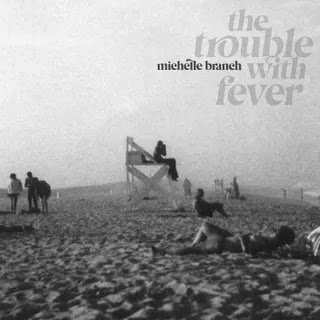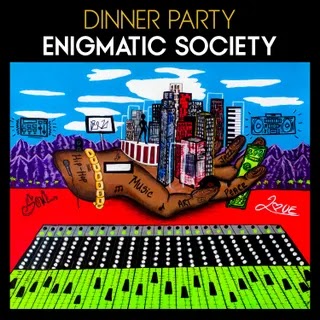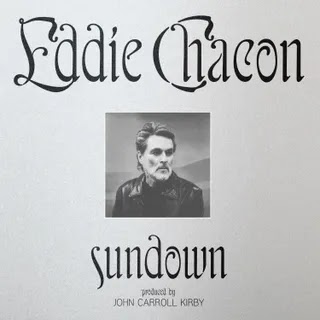The musical output of Michelle Branch and Patrick Carney’s embattled partnership suffers from muddled songwriting and meandering arrangements.
The enduring image of Michelle Branch is that of a young woman holding a guitar, fixing you with an open stare, and daring you to look back. In TRL days, she was photographed in empty lofts and alongside desert blacktops, dressed like an all-American rocker with nods to her Southwestern roots. This image projected a frankness rare among teenage pop stars, even if it didn’t quite capture the appeal of her early work. For all their hooks, bridges, and I’m-sinking-slowly-so-hurry-hold-mes, 2001’s The Spirit Room and 2003’s Hotel Paper are entrancing guitar-pop records, bolstered by Branch’s second-person immediacy and producer John Shanks’ sleek execution. (The striking pre-chorus of “Everywhere,” where the verse structure veers off-key into the stop-start hook, is Shanks’ signature—seen elsewhere on “Come Clean,” “Have a Nice Day,” and “Pieces of Me.”)
Branch’s stardom was as brief as it was sudden. Hotel Paper landed a week before her 20th birthday; Warner sat on the follow-up, cycled Branch through the Nashville machine, and eventually dropped her. Shanks returned for 2010’s Everything Comes and Goes EP, and co-wrote a track on Branch’s 2017 comeback Hopeless Romantic. In the interim, she found a new songwriting partner. After meeting Patrick Carney at a party thrown by his then-wife in 2015, Branch and the Black Keys drummer agreed to work on a batch of unproduced songs. A year later they were a couple, and after marrying in 2019, they returned to the studio for Branch’s fourth full-length. Weeks before The Trouble With Fever’s scheduled release, the bottom fell out: Branch was arrested on a since-dismissed domestic assault charge and filed for divorce before agreeing to attempt reconciliation.
Meanwhile Branch is promoting the musical output of their embattled partnership, a long-simmering album co-written and co-produced by Carney. Fever is such a comprehensive blunder, it’s hard not to search for cracks in the couple’s working relationship. Lead single “I’m a Man,” a would-be anthem from the Carrie Underwood school of revenge feminism, lampoons its male narrator with sardonic framing: “I’m a man/And I’m ready to go/And I can’t get it up/And I can’t let it show.”
No points for subtlety, but fair enough. That’s until Branch abandons the bit, shifting to a woman’s perspective for the second verse: “I’m so tired of being told by everybody/That I can’t make decisions ’bout my own damn body.” The hook is unmelodic, the guitars sound like kazoos, and the violin breakdown is bafflingly out-of-place. Here is a sendup of male impotence, composed and recorded with the husband Branch nearly sent packing. You couldn’t write this stuff! Unfortunately, neither can they—as a protest song it’s jumbled, with none of Hotel Paper’s snarling bite.
Listening to Fever’s lurching arrangements, the question must be asked: Has Patrick Carney ever heard a Michelle Branch song? Even if country-pop isn’t his comfort zone, Branch is a compelling vocalist capable of wary plaintiveness and blistering rancor, effecting a humane intimacy even when her lyrics trend unspecific. She can do bluesy twang and canyon-rock jangle, but the slinky Europop of “Zut Alors!” would’ve been a stretch even for Madonna. The verses (“I get the feeling that we’re on them drugs/And what will happen when it’s not enough?”) are as inane as the swirling disco strings; it’s like Dua Lipa on downers. The unabashed come-ons of “Beating on the Outside” are the album’s lyrical nadir, beginning with the opening bars’ entreaty: “I wanna get you off/I wanna see your face.”
The album isn’t bold enough to commit in any one direction, offsetting whispery synth-pop with saccharine country ballads. Still, the most glaring structural defects are overarching. The dressed-up guitars range from staticky to syrupy; the arrangements meander into melodramatic bridges. The synthetic percussion and modest chord progressions make for a chamber-pop ponderousness. (Has a world-renowned drummer ever been so enamored by chintzy drum machines?) In lieu of hooks, Branch sings wordless, ooh-ooh-ooh harmonies, like vocal reference tracks left intact.
Some of these songs might have been salvaged if not for their bewildering instrumentation. It’s hard to tell where the guitars end and the keys begin in the sludgy wall of sound on “I’m Sorry.” With abrasive synths and spaced-out percussion, “You Got Me Where You Want Me” feels at once too busy and too sparse. The keeper is “Closest Thing to Heaven,” a midtempo ballad with cozy, plainspoken lyrics. The quiet intro spotlights Branch’s burnished voice, picking up momentum en route to the first chorus, but a succession of extraneous instrumental breaks distracts from the easy melody. A more sure-handed producer would have honed in on the chords and the epistolary quality of Branch’s verses. There’s a really nice song here, buried in over-produced schmaltz.
If history remembered Branch as a layover between Liz Phair and Avril Lavigne—or worse, a peer of Hilary Duff and Ashlee Simpson—it wouldn’t do justice to her broader catalog. Hopeless Romantic glimpsed a future in genre work with a distinctive set of woozy, ’70s-inspired rock tunes; with any luck, Fever will be the aberration. When a creative-slash-romantic partnership goes south, you might get Rumours, proof of art’s capacity to transcend animosity. More likely, you’ll get a mishmash like The Trouble with Fever: jaded lovers grappling for space.
















0 comments:
Post a Comment